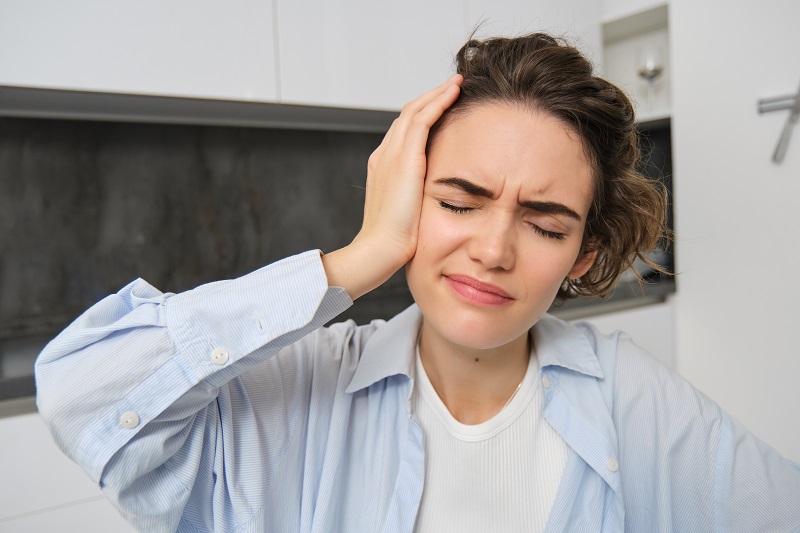 Allergy symptoms, such as nasal congestion, sneezing, and watery eyes, are well-known, but it is also important to recognize that allergies can manifest in the ears and cause ear pain. For instance, individuals may experience ear pain or persistent ringing in the ears. Understanding the potential connections between these symptoms and allergies is crucial, as they may not be immediately linked to typical nasal discomfort.
Allergy symptoms, such as nasal congestion, sneezing, and watery eyes, are well-known, but it is also important to recognize that allergies can manifest in the ears and cause ear pain. For instance, individuals may experience ear pain or persistent ringing in the ears. Understanding the potential connections between these symptoms and allergies is crucial, as they may not be immediately linked to typical nasal discomfort.
Ear Pain And Allergies: What’s the Connection?
Allergies are known to cause inflammation in the Eustachian tubes, leading to ear-related issues that can result in pain and discomfort. Allergies are a response of the immune system to various environmental substances, including pollen, pet dander, dust mites, and mold. Upon encountering these allergens, the body releases chemicals such as histamine in an effort to combat what it identifies as a threat. This reaction can result in symptoms commonly associated with allergies, including sneezing, itching, nasal congestion, a runny nose, and watery eyes. Although these symptoms are typically associated with the nasal and throat regions, they can also affect other areas of the body, including the ears. It is noteworthy that many individuals may not recognize the connection between ear pain or discomfort and allergic reactions.
How Ear Pain And Allergies Are Linked
Allergies can contribute to ear pain and discomfort through several mechanisms. Understanding these links can help provide insight into the underlying causes of ear-related symptoms associated with allergies.
Eustachian Tubes
Allergic reactions can cause inflammation of the Eustachian tubes, which play a critical role in regulating pressure within the ears. When these tubes become swollen, patients may experience discomfort, reduced hearing clarity, and a sensation of fullness in the ears.
Sinus Congestion
Sinus congestion is a prevalent symptom associated with allergies. When allergic reactions lead to the blockage of the sinuses, the resulting pressure can extend to the ears, potentially causing ear pain.
Fluid Build-Up
Allergic reactions may lead to fluid accumulation in the middle ear, causing pain and increasing the risk of infection.
Tinnitus
Tinnitus, the clinical term for the perception of ringing in the ears, may be connected to allergies. The inflammation and congestion associated with allergic reactions can aggravate pre-existing tinnitus or even lead to the development of new symptoms. This association may prompt patients to question the persistent buzzing or ringing they are experiencing.
Ear Pain Related To Allergies
Allergy-related ear pain often occurs in conjunction with other allergy symptoms, including nasal congestion, itchy eyes, and sneezing. This type of pain is often described as dull, accompanied by a sensation of fullness or pressure within the ears. Conversely, ear infections frequently present with sharp or intense pain. Patients may also experience additional symptoms such as fever, drainage from the ear, and a sudden loss of hearing. The pain associated with infections is typically more localized and severe compared to the discomfort caused by allergies.
Tinnitus vs. Ear Infection
If the ringing in your ears is associated with congestion or sinus pressure, it is likely attributable to allergies. However, in cases of prolonged tinnitus accompanied by pain, fever, or drainage, it is advisable to contact a healthcare professional to exclude the possibility of an infection. If there is any uncertainty regarding the symptoms, seeking guidance from a healthcare provider is strongly recommended to ensure an accurate diagnosis and determine the appropriate course of treatment.
When to Seek Medical Assistance
You can effectively manage most cases of ear pain related to allergies with suitable treatment. However, it is important to recognize when to seek medical attention. If you experience any of the following symptoms, please reach out to a healthcare provider without delay:
- Chronic or severe ear pain that does not improve with over-the-counter treatments..
- Persistent fever, ear drainage and discharge, or rapid hearing loss.
- The progression of tinnitus significantly affects your ability to perform daily tasks.
These symptoms may indicate the presence of an ear infection or another underlying condition that warrants medical evaluation.
Finding Relief
Ear pain related to allergies is a common issue; however, effective treatments are available to alleviate discomfort and help manage allergy symptoms. By employing effective care strategies, you can alleviate both allergy-related ear pain and other associated symptoms. Audiologists are specialists dedicated to providing effective solutions for managing issues related to ear pain and associated symptoms, ultimately enhancing your overall quality of life.